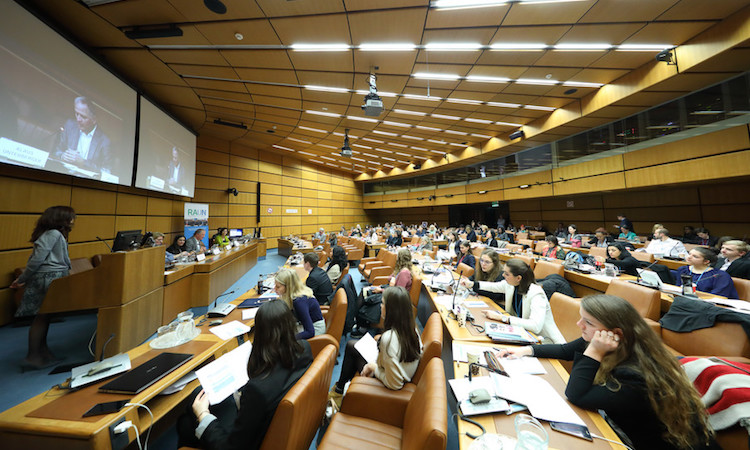By Krista Price*
This is the third in a series of reports on the Vienna UN Conference from January 10-12, 2018, which discussed actions and challenges linked to the Sustainable Development Goals, particularly 5 (SDG 5) and in the spirit of SDG 17. The Vienna Liaison Office of the Academic Council on the United Nations System (ACUNS) organized this Conference co-ordinated by Heather Wokusch. – The Editor
VIENNA (IDN) – A comfort often overlooked, the water served at the Vienna UN headquarters is locally sourced from mountains outside of the city. In Austria, water is a point of pride. This developed nation’s water sector is committed not only to quality water systems but also to sustainable practices regarding the water and waste industry. For Austrians, and those frequenting the UN’s conference rooms in Vienna, exceptional drinking water is a given. ARABIC | GERMAN | JAPANESE
However, this is not the case for a discouragingly large portion of the world’s population. Rapid industrialization, coupled with the ever-increasing global population, has created a world in which water is of high demand while the supply is quickly diminishing. Approximately 60% of the world’s population goes without safe toilets or waste systems. Furthermore, almost 2.1 billion people use untreated sources of drinking water daily.
Even more disheartening, when water management is underdeveloped within a community, the burden of water sourcing most often falls on the shoulders of women. In many rural communities, women use water in their key roles of food production, management of the home, waste water systems and more.
In a recent panel at the ACUNS Vienna UN Conference, Dr. Peter Weish of the University of Natural Resources and Life Sciences in Vienna noted the importance of gender “for peace and sustainable development,” adding that “women play an essential role in the fight for a livable world, in the fight for drinking water.”
The interconnection between education (SDG 4), gender equality (SDG 5) and clean water and sanitation (SDG 6) is clear. However, just as important is better governance of water to improve the welfare of women worldwide, he said. Policies must be gender focused to impact communities in which water is scarce or management of the resource is undeveloped. Policy creation must be tailored to the needs of the women who carry the burden, he added.
According to Mariet Verhoef-Cohen, President of Soroptimist International and Women for Water Partnership, “Water and women are deeply connected… women often lack social and political power and are, therefore, systematically excluded and marginalized from decision-making processes.” Speaking at the ACUNS conference, Verhoef-Cohen noted that since this undermines the effectiveness of water governance policies, gender-biased social and institutional barriers within the water industry must be reworked to ensure development of effective water policies.
As a result, Soroptimist International, a group of 75,000 members in 122 countries, has determined its 2017–2019 biennium focus to be on Women, Water and Leadership. A corresponding pilot project has provided female farmers in Kenya with vocational training and expertise to produce higher crop yields using less water. The aim is to empower women with knowledge about water, thus improving their harvesting results and increasing their economic independence.
To be impactful for women in rural communities in Africa or Asia and women responsible for fetching water in Romani communities in Hungary and elsewhere, however, policy development regarding water governance must also account for women’s needs. Verhoef-Cohen stressed the imperative to “position women as active leaders and experts, partners and agents of change” in all areas of water: policy, community development, and practice.
While the UN continues striving for SDGs in all areas, she said, it is of critical importance that the policies that make the Alpine water so easily enjoyed at the UN Vienna, be a priority and gender focused for the benefit of women worldwide.
*Krista Price is a graduate student of International Relations at Webster Vienna Private University. Her focus on human security and human rights was reflected in her internship with the Florida Holocaust Museum and undergraduate studies in history and law. She works in Webster’s Marketing Office and will soon be producing Webster’s International Relations podcast, The 1020. [IDN-InDepthNews – 26 January 2018]
Photo: A general view of the Vienna UN Conference. Credit: Robert Bosch AG/APA-Fotoservice/Schedl




